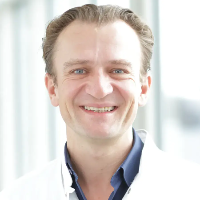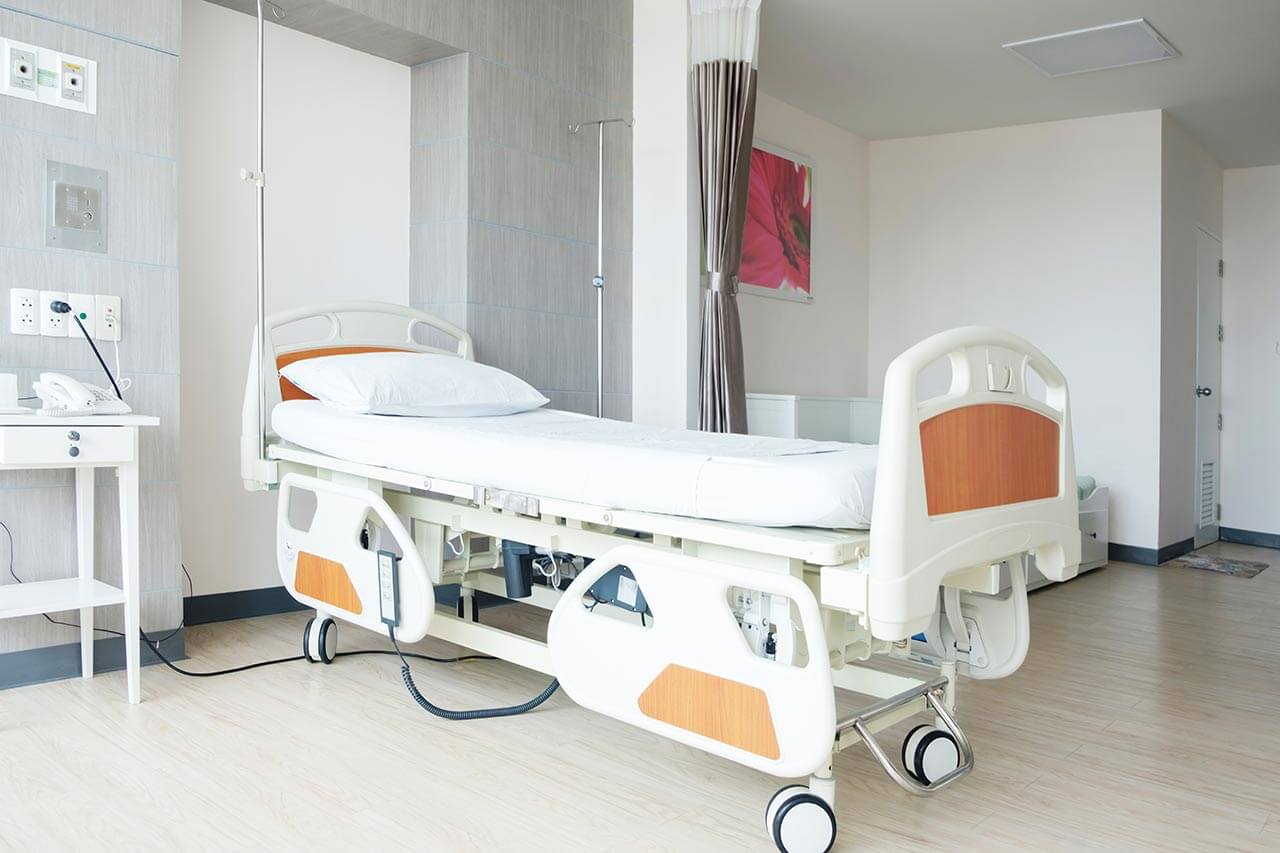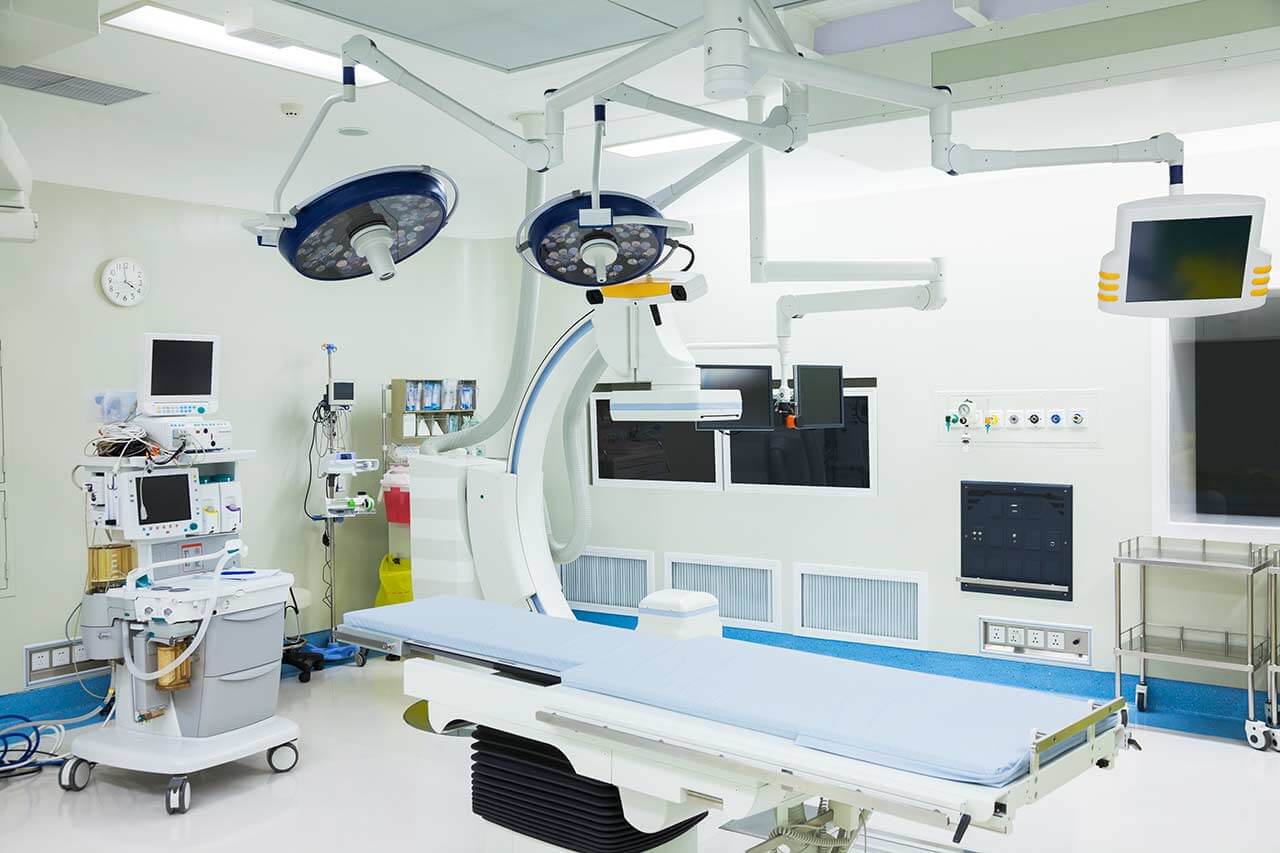
About the Department of Cardiac Surgery at German Heart Center Munich
The Department of Cardiac Surgery at the German Heart Center Munich offers the full range of modern surgical treatments for cardiovascular diseases. The department enjoys a reputation as a leading medical facility specializing in treating acquired heart defects. The department's surgeons perform about 2,800 cardiac surgical interventions every year, including especially complex ones. Cardiac surgeons most often perform operations for heart defects and pathologies of the coronary arteries, heart valves, and aorta. All operations are performed in state-of-the-art operating rooms with advanced equipment and high-precision monitoring systems, which make surgical treatment not only the most effective but also the safest for a patient. Sparing, minimally invasive techniques are widely used in clinical practice, and some operations are performed without the use of a heart-lung machine. After the operation, the patient receives proper care for a rapid recovery. The department is headed by Prof. Dr. med. Markus Krane.
The department has many significant achievements. The main ones include the first successful heart transplant in Germany (May 7, 1981), the development of new methods for preserving heart grafts, the first comprehensive endoscopic mitral valve repair using the da Vinci surgical system, the foundation of an in-house Homograft Bank for treating heart valve pathologies, the development of a new centrifugal pump for circulatory support, and many other innovations. All these achievements contribute to the credibility of the medical facility not only in Germany but also in other countries of the European Union.
The full spectrum of surgical interventions on the heart and large blood vessels is performed to treat acquired heart defects, ranging from heart valve repair to myocardial revascularization and surgical reconstruction, for example, interventional stent implantation into the thoracic aorta, non-invasive treatment of aortic aneurysms, heart transplants, and artificial heart implantation. The department also offers an innovative treatment method for aortic diseases, in particular aneurysms and dissections. Open aortic surgery is associated with high risks, so endovascular stent implantation is a revolutionary method in this medical field. The department's surgeons have long experience in performing such procedures and guarantee a successful treatment outcome.
The doctors at the medical facility often treat coronary artery diseases. The most common pathology is coronary heart disease, which causes an insufficient supply of oxygen and nutrients to the myocardium due to coronary artery obstruction. Early stages of the disease can be treated with drug therapy, during which patients receive medications to expand the coronary blood vessels and improve blood flow. However, drugs cannot cure coronary artery disease, and coronary artery bypass grafting is the only effective method to eliminate the pathology. The essence of the operation is to form a new path for blood flow by bypassing the narrowed coronary vessel with the help of a special bypass. The standard CABG operation is carried out with the aid of a heart-lung machine, but the department's specialists also carry out innovative options for surgical intervention on a beating heart. At the preparation stage, a surgeon determines the optimal type of operation for a particular patient and talks about the features of the upcoming treatment. The department's cardiac surgeons perform hundreds of CABG surgeries every year, and the success rate of surgical treatment is at its highest level.
For more than 30 years, heart valve repair and replacement surgery have been among the primary focuses of the department's specialists. Cardiac surgeons prefer minimally invasive techniques to treat heart valve pathologies. Doctors always strive to preserve a patient's own heart valve by resorting to repair interventions, but, unfortunately, this is not always possible. In the case of severe heart valve lesions, a patient requires an operation to replace it. The department's surgeons implant mechanical and biological prostheses, each of which has its own advantages and disadvantages. The implantation of a mechanical artificial heart valve guarantees a long-term result, but a patient must constantly take drugs to prevent thrombosis. In the case of a biological prosthesis, there is no need to take drugs, but its service life is rather limited, so this treatment option is usually preferable for elderly patients. An artificial prosthesis is implanted using minimally invasive techniques, and, in some cases, surgeons perform catheter-based interventional procedures, which are today considered as sparing and safe as possible.
The department's cardiac surgeons prefer minimally invasive operations, as they are not inferior in terms of their efficiency to open surgery, but, at the same time, they have a number of undeniable advantages. These include rapid recovery, minimal pain, minimal blood loss, and excellent aesthetic results (especially important for women). The department most often performs such minimally invasive interventions as MitraClip, NeoChord, Cardioband, and Mitralign. The last two procedures are innovative, as they have recently been clinically tested and approved for their use in clinical practice.
The department's specialists are also competent in hybrid interventions, which are a combination of classical cardiac surgery and catheter-based techniques. In an emergency, hybrid procedures allow doctors to perform simultaneous diagnostics and treatment on high-risk patients without any delay or additional transportation.
The department specializes in the surgical treatment of the following diseases:
- Congenital and acquired heart defects in adults
- Coronary heart diseases
- Ischemic heart disease
- Heart valve pathologies
- Aortic valve pathologies: aortic valve stenosis and insufficiency
- Mitral valve pathologies: mitral valve stenosis and insufficiency
- Tricuspid valve pathologies: tricuspid valve insufficiency
- Aortic pathologies
- Aortic dissection
- Other heart conditions
The department's key clinical focuses include:
- Coronary artery bypass grafting with and without a heart-lung machine and minimally invasive direct coronary artery bypass grafting
- Surgery and interventional catheter-based procedures for heart valve pathologies
- Innovative NeoChord procedure for treating heart valves
- MitraClip procedure
- Transcatheter aortic valve implantation (TAVI)
- Transcatheter edge-to-edge repair (TEER)
- Transcatheter mitral valve implantation (TMVI)
- Aortic valve repair with the patient's own tissue
- Revision heart valve replacement surgery
- Combined surgical procedures involving bypass surgery and heart valve interventions
- Interventions for aortic pathologies (for example, interventional intraluminal stent implantation into the descending aorta)
- Surgical treatment of heart arrhythmias (for example, pacemaker implantation and intraoperative ablation for atrial fibrillation)
- Surgical treatment of heart tumors
- Implantation of heart support systems, in particular a ventricular assist device (VAD)
- Hybrid heart surgery (combination of a classical intervention with catheter-based techniques)
- Other heart interventions
Curriculum vitae
Higher Education and Professional Career
- 04.1998 - 04.2000 Medical studies, Heinrich Heine University Duesseldorf.
- 05.2000 - 10.2004 Medical studies, Ludwig Maximilian University of Munich.
- 2004 Admission to medical practice.
- 02.2005 - 09.2009 Assistant Physician, Department of Cardiac Surgery, German Heart Center Munich.
- 10.2009 -11.2010 Research Fellow, Heart Research Center, Harvard Medical School, Boston, Massachusetts.
- 12.2010 - 04.2015 Assistant Physician, Department of Cardiac Surgery, German Heart Center Munich.
- 09.2013 - 10.2019 PD, Technical University of Munich.
- 05.2015 - 05.2021 Cardiac Surgeon, Department of Cardiac Surgery, German Heart Center Munich.
- 10.2019 - 05.2021 Extraordinary Professorship, Technical University of Munich.
- 05.2021 - 06.2022 Lecturer, Department of Cardiac Surgery, School of Medicine, Yale University.
- 07.2022 - 08.2023 Extraordinary Professorship, Department of Cardiac Surgery, School of Medicine, Yale University.
- Since September 2023 Head Physician, Department of Cardiac Surgery, German Heart Center Munich.
Administrative Positions
- 02.2011 - 07.2017 Head of the Division of Experimental Surgery, Department of Cardiac Surgery, German Heart Center Munich.
- 10.2015 - 05.2016 Acting Head Physician, Department of Cardiac Surgery, German Heart Center Munich.
- 06.2016 - 05.2021 Deputy Head Physician, Department of Cardiac Surgery, German Heart Center Munich.
- 08.2017 - 05.2021 Head, Institute for Translational Cardiac Surgery (INSURE), Department of Cardiac Surgery, German Heart Center Munich.
Awards, Prizes, and Scholarships
- 2002 Scholarship, Fritz ter Meer Foundation.
- 2003 Scholarship, German Academic Exchange Service.
- 2008 Best Poster Award, German Atherosclerosis Research Society.
- 2009 Research Fellowship, German Research Society (DFG).
- 2011 Dr. Rusche Research Award, German Society for Thoracic and Cardiovascular Surgery (DGTHG).
- 2013 Encouragement Prize for Gifted Students, Technical University of Munich.
Memberships in Professional Societies
- Since 2020 European Association for Cardio-Thoracic Surgery (EACTS).
- Since 2015 German Society for Thoracic and Cardiovascular Surgery (DGTHG).
- Since 2016 German Center for Cardiovascular Research (DZHK).
- 2019 - 2021 Cardiac Surgery Expert Group – Institute for Quality and Transparency in Healthcare (IQTIG).
Photo of the doctor: (c) Deutsches Herzzentrum München




